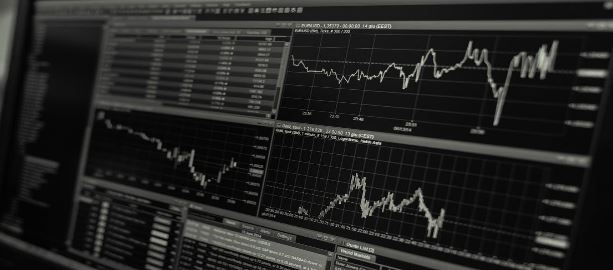 Introduction
Introduction
CFD stands for Contract for Differences, a financial stipulation between two parties, i.e., buyer and seller. While purchasing or shorting a CFD instrument, a trader receives the difference in the asset price at the end of the contract. This form of trading does not require any ownership of the instrument as CFDs are derivative products.
One of the significant advantages of CFD trading is the ability to trade the market in both long and short directions and the majority of the instruments available. To understand how traders can benefit from them, we will cover all the major characteristics of CFDs and discuss the demerits.
Where can you trade CFDs?
CFDs are available to trade with most brokers. To start, traders will have to open an account using their email and password. Top companies will always ask for your verification documents due to regulatory issues. Afterward, there is mostly an option to choose the account type. Select the one that matches your needs and deposit funds using the available methods.
Your account type and the choice of platform should match each other. Sometimes a single portfolio option is only available with particular software.
Features of CFD Trading
The potential qualities of CFD trading are detailed under the subheadings below.
Trading Costs
There are multiple models through which a broker can charge you for execution on a CFD. One popular method is the spread which is the difference between an ask and sell price. Depending on the instrument you trade, they can vary from one to a few pips. Rollover fees is applicable where the position is open overnight. They can be positive or negative, depending on the asset.
ECN models usually have zero spreads, and the costs are covered in a fixed commission. These accounts have faster execution speeds and are best for scalpers or high-frequency trading algorithms.
Using Margin
There is a huge amount of margin available in CFDs. Leverage can be used to open positions with a higher lot size without even having enough balance on your account. While this can increase the amount of profits you receive, it can also add significant risk to the account.
Types of Instruments
Traders can trade on multiple assets with CFD trading, including forex, stocks, indices, futures, and commodities. Investors can also find them all within a single broker eliminating the need to open multiple accounts and manage them.
Financial Regulation
As with other forms of trading, CFD brokers are subjected to regulation from regulatory companies. This maintains the level and quality of services available to traders and ensures that no one gets scammed. Traders should always check the regulation of a broker before choosing to deposit their cash or providing verification documents.
Strategies
With access to multiple order types such as stops, limits, GTC, etc., traders can hedge out of their positions in both long and short directions. Averaging is also applicable here.
Some Potential disadvantages of CFD Trading
It is essential to cover some drawbacks of CFD trading to avoid any significant losses.
- Unregulated CFD brokers can cause liquidity issues and fraud their customers. Always check if a broker comes under the regulation of noted financial authorities.
- A high spread or commission can decrease profits substantially immediately when entering a position.
To understand how spreads can affect your trading, let us consider an example where an investor places a buy position of one lot on USDJPY at 110.100. The difference between the bid and ask is 1 pip which causes an immediate $10 loss. To cover it, the trade must go above 110.110.








